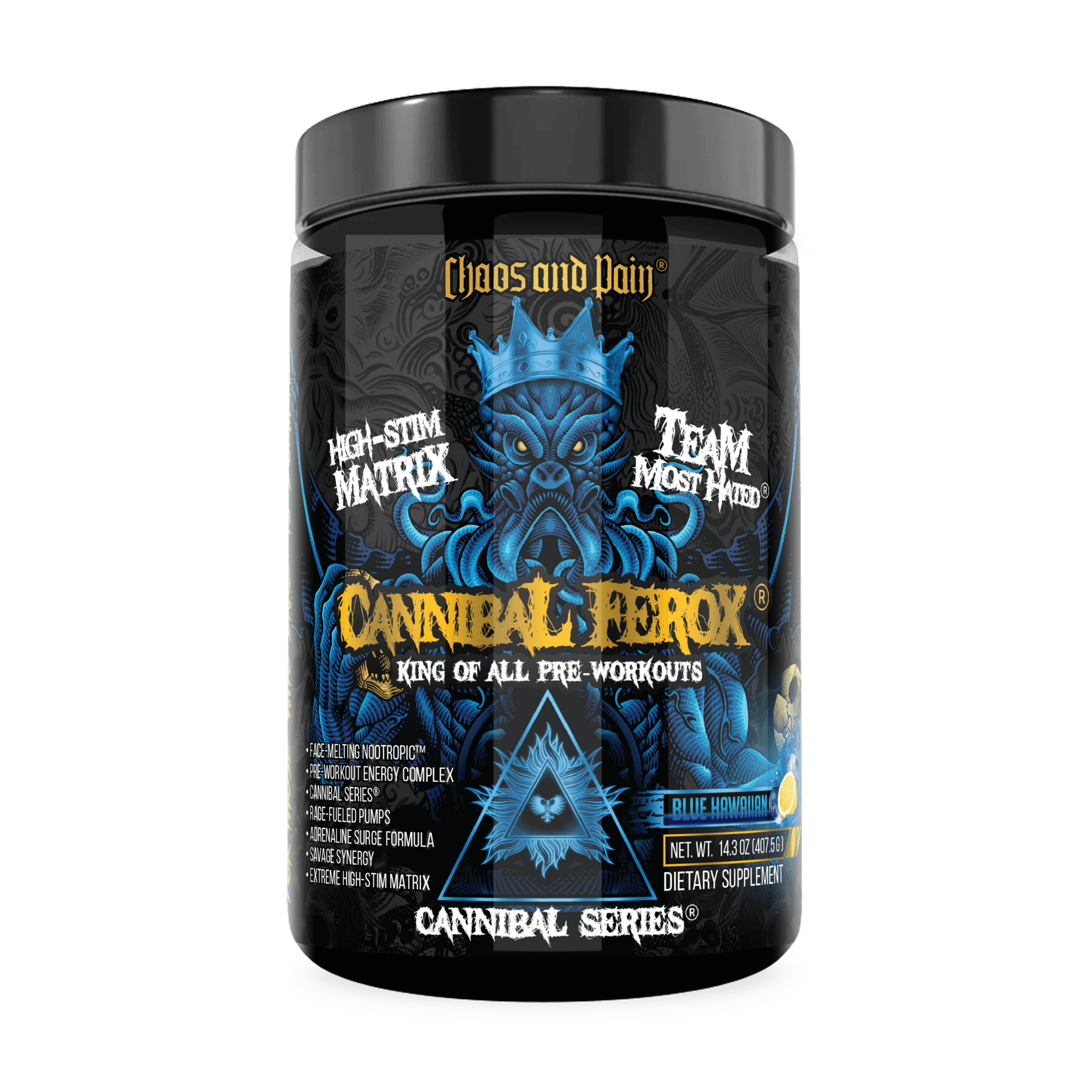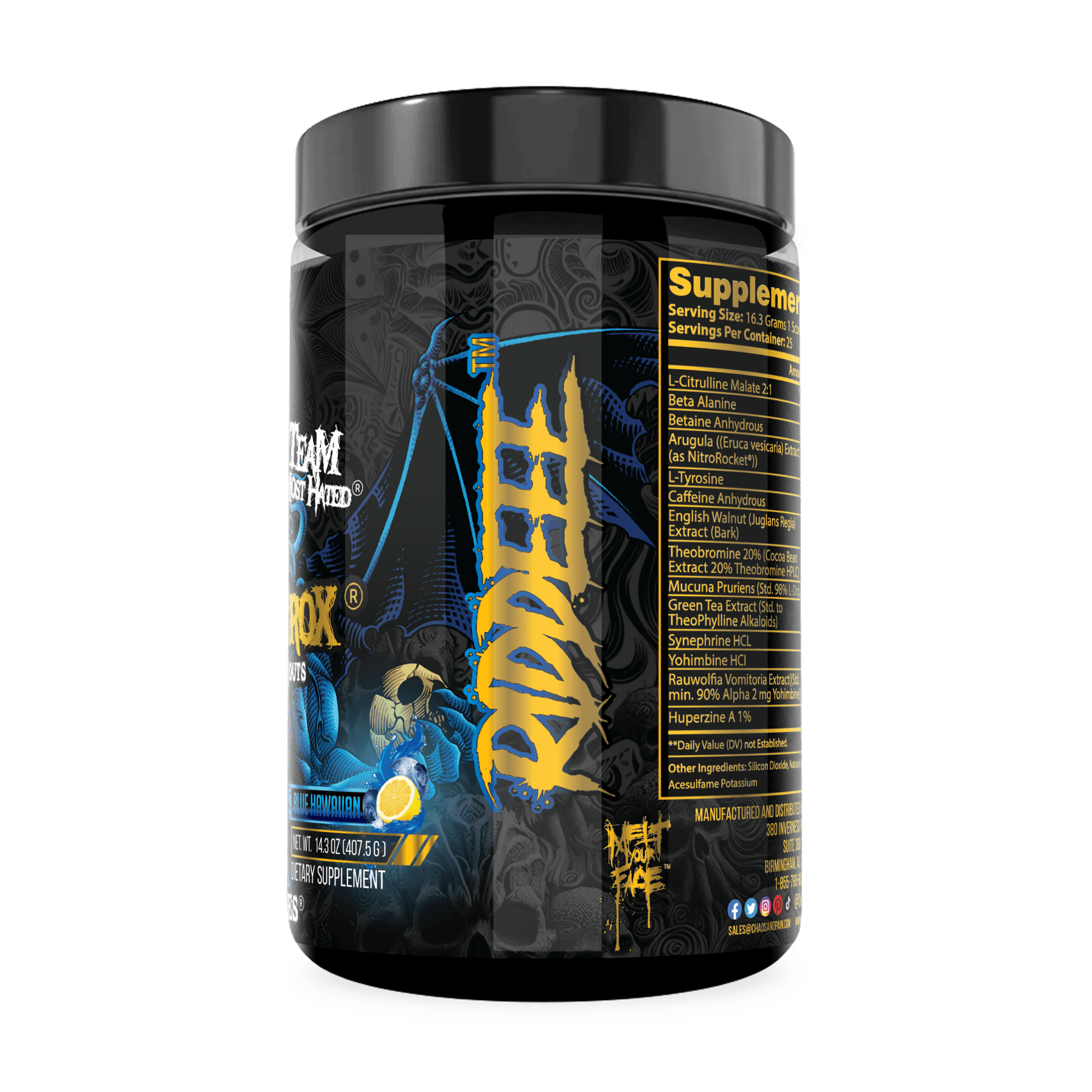INSIDE THE BIZARRE WORLD OF ALL AROUND WEIGHTLIFTING
Of all the bands in metal, one stands out as forever existing in the conversation. Though you’d be screwed if you had to find a die-hard fan of the band- Motörhead. Formed in the mid-1970’s, Motörhead’s been hailed as one of the seminal heavy metals bands. However, are credited with being the progenitors of thrash metal. Although metal fanboys will namedrop Motörhead for any reason or none at all. You would be hard pressed to find a person who can name a single Motörhead song beyond The Ace of Spades. Only then because the hard rock anthem was in three Rock Band releases.
Known affectionately by his fans as “The Warted One”. Lemmy is to rock star good looks what a gelatin tuna salad mold is to delicious comfort foods. His face is to Ben Affleck’s what flakka is to Adderall. Beyond that, the man drank at least a bottle of Jack Daniels a day for 37 years. Essentially lived off LSD and speed for the entirety of his career. Which might not account for his face but should earn him a trip to a medical think tank. Therefore, to determine what sorcery gave his heart and liver better longevity than a naked mole rat.
Looks more like the kind of guy who’s banged a handful of chicks in the dumpster behind fast food joints. Might occasionally land the diner waitress with some hard miles on her face, a speed habit, and a bunch of C-section scars than the white Wilt Chamberlain.
Although his music is generally unmemorable, he’s uglier than a can of smashed assholes, and he consumed massive amounts of every substance commonly believed to make your dick limper than Philip Seymour Hoffman’s wrists, Lemmy’s banged over 1200 women. While many of them were likely of the brown snaggletooth, massively bespectacled, infamously ugly 1970’s British variety, that’s still quite a feat. Oh, and did I mention the man credited with inventing speed and thrash metal has stated in numerous interviews that he absolutely hates the genres of music with which he’s credited? If Jesus had only managed to convert colonies of syphilitic hermaphrodites and subsequently decided that Mithraism was far cooler than modern Christianity, it still wouldn’t do justice to Lemmy’s quizzical actions.
Like Lemmy and Motörhead, all round lifting and USAWA/IAWA (United States All-Round Weightlifting Association / International All-Round Weightlifting Association) don’t play nicely with the strength sports to which their traditions gave birth. Instead, all round lifters seem to inhabit their own niche miles distant from powerlifting, Olympic weightlifting, and strongman- instead of raving about massive numbers and brutal training regimes, the USAWA guys are handing out courage and sportsmanship awards (no kidding- it’s as if their organization is run by a kindergarten teacher who lives next to a trophy shop) and discussing the weirdly massive age ranges of their competitors.
Nowhere on the USAWA website will you find anything with a BR00TAL or extreme theme- everything is tidy and polite, nodding respectfully to the drunken lunatic strongmen of the past as if they’d actually hang out with them if, say, Saxon were to stumble into one of their gyms demanding a barrel of beer for himself and another for the people in the gym, and then lifting random crap until everyone else collapsed from exhaustion, they’d be super psyched he’d vomited all over their platform.
Weirder still, one sees very little crossover of athletes from USAWA into the other three disciplines, or vice versa. Despite the apparent likeness of the two sports, it’s not been widely publicized if a strongman ever made a crossover into USAWA. Instead, the sport is content to garner the occasional mention in Milo… which is a far cry from its roots as the beginning of organized strength sports competition in the Western Hemisphere.
Though its roots are in the late 19th and early 20th Century, all-round weightlifting as an organized sport began in the US in 1985, when groups of odd lifts aficionados from the US battled lifters from the UK. Lifting competitions at the turn of the century were formal affairs often contested for decent sums of money, but they had no set format. Instead, the contestants, usually two, agreed upon several lifts, then determined the winner when one lifter defeated the other in more events. In that way, it was much the same as how strongman events are contested now.
With the resurrection of the Olympics, weightlifting became a bit more organized, as the focus shifted to one and two hand versions of the snatch and clean (and for one Olympics, the swing). Perhaps since fun and the Olympic lifts are more akin to matter and anti-matter than anything else, informal lifting competitions persisted locally as “odd lift” competitions, which also included a physique round to determine the overall winner (Salado).
Though the competitions were a far cry from those of the Bavarian beer gardens half a century and an ocean away, lacking both the standout lifters and large crowds, odd lift competitions flourished in the US in the 1940s and 1950s (Ibid). With no set program of lifts, the participants themselves chose the events, which ranged widely between power lifts, Olympic lifts, and bodybuilding movements, the points from which were then added to the evening physique competitions to determine a winner (Salado). Now, before you channel your inner Leslie Chow and shout “HA! GAAAAAYYYY!” at the screen, bear in mind that these competitions, while small and local, were incredibly popular. So much so, in fact, that the godfather of Olympic weightlifting and evil authoritarian overlord of strength sports, Bob Hoffman, decided to destroy them.
Awed by the lifting feats of Terry Todd, who at the time was the strongest man in America not named Paul Anderson, Grimek had taken a shine to what were then being called the “power lifts”, as the bench press, deadlift, and squat started to pull away from the odd lift contests (Fair 212, Sutphin 413). Seeing powerlifting as the best method by which Hoffman could counter Weider’s growing legion of oily man magazines, Hoffman founded Muscular Development as a powerlifters’ training and diet resource (Fair 215). He had, however, an even more nefarious goal- to destroy the sport of odd lifting, which he saw as a threat to his beloved Olympic weightlifting.
According to Hoffman, “there were not enough Olympic lifters in America and that physique and odd-lift contests were ‘killing our chances of victory’ in international competition (Fair 216). To that end, he advocated upright rowing and behind the neck pressing for “power-lift” programs and sponsored the first two national powerlifting meets in 1964 and 1965 to force lifters’ hands into choosing a side (Ibid). If that seems to be counter-intuitive to you, as powerlifting would simply steal great lifters from Olympic lifting, you’re not the only one. This would be like a Christian pastor decrying the loss of straight men in a bar to a club for bisexuals and deciding to sponsor a homosexual-only bathhouse and promote the gay lifestyle as a stop-loss.
Predictably, odd lifting was all but dead by the 1970s (History). Like the martial arts masters of China going into hiding in the mountains when the Qing took power to refine their arts while living in caves, odd lifting aficionados retreated to the dusty corners of forgotten gyms and practiced their art in secret, awaiting a day when they could again pit themselves against other lifting Renaissance men. One of these men was Ed Zercher, the guy for whom the zercher lift is named. Ed was well known in Missouri for helping any young lifter in the area, and they all trained in Ed’s dungeon basement.
For those of you who know what a zercher lift is, it will come as no surprise that Ed’s gym lacked a squat rack, so it stood to reason that he and his lifters would begin to keep track of the weird stuff they did, just so they had a metric against which to measure themselves. It was this small group that eventually formed the basis for the USAWA, training in a tiny gym in a backwoods town, doing lifts of their own invention, those they’d heard about in passing (like the zercher lift, which Ed heard of being referred to as an elbow squat and started using), and those they had read about in the books of turn of the century strongmen (Van Vleck 99-100).
For some reason, these pasty subterraneans eventually met other groups of like-minded, anachronistic, Morlocks. Over the first few years of the 1980s they had enough of a cohesive structure that groups of odd lifters from both the US and the UK made contact, and by 1987 the first international odd lifting competition took place. For whatever reason, the sport’s gained very little traction in the interim, but like Lemmy and Motörhead, the mere fact they seem anachronistic isn’t necessarily a reason to ignore them altogether.
Though, because the number of lifts that can possibly be contested in the IAWA borders on ridiculous. A rival organization, the Odd Lift Strength Association, had a much shorter list of contested lifts. However appears to have been dead for the last few years. Their competition lifts numbered only 25, and none of them seem esoteric enough to deserve a mention in a Dennis Miller monologue.
By contrast, the IAWA’s website lists no fewer than 170 movements. Many of which are likely only known to a few people on the planet. That is not going to stop us from finding out just what the hell these guys are up to. So, next time, we are going to delve into the lifts of the odd lift movement and see if we can figure out why that entire sport is consigned to a possibly interconnected, Viet Cong-style series of basements in the Midwest.
For more informative blogs by Chaos and Pain click here.
Sources:
Fair, John D. Muscletown USA: Bob Hoffman and the Manly Culture of York Barbell. University Park: Pennsylvania State Press, 1999.
History of I.A.W.A. (UK). IAWA. Web. 29 Aug 2014. http://www.iawa.org.uk/HISTORY.html
Salado, Julio. From Odd-lifts to Powerlifting: Boston’s weight lifting pioneer Archie Burgess. Fitness Foundry. 10 Aug 2013. Web. 29 Aug 2014. http://fitnessfoundry.net/2013/08/from-odd-lifts-to-power-lifting-bostons-weight-lifting-pioneer-archie-burgess/
Sutphin, Paul. Powerlifting: The Total Package. Bloomington: Authorhouse, 2014.
Van Vleck, Thom. Do You Zercher? Milo. 2009 Sep;17(2):98-103.


















Leave a comment
All comments are moderated before being published.
This site is protected by hCaptcha and the hCaptcha Privacy Policy and Terms of Service apply.